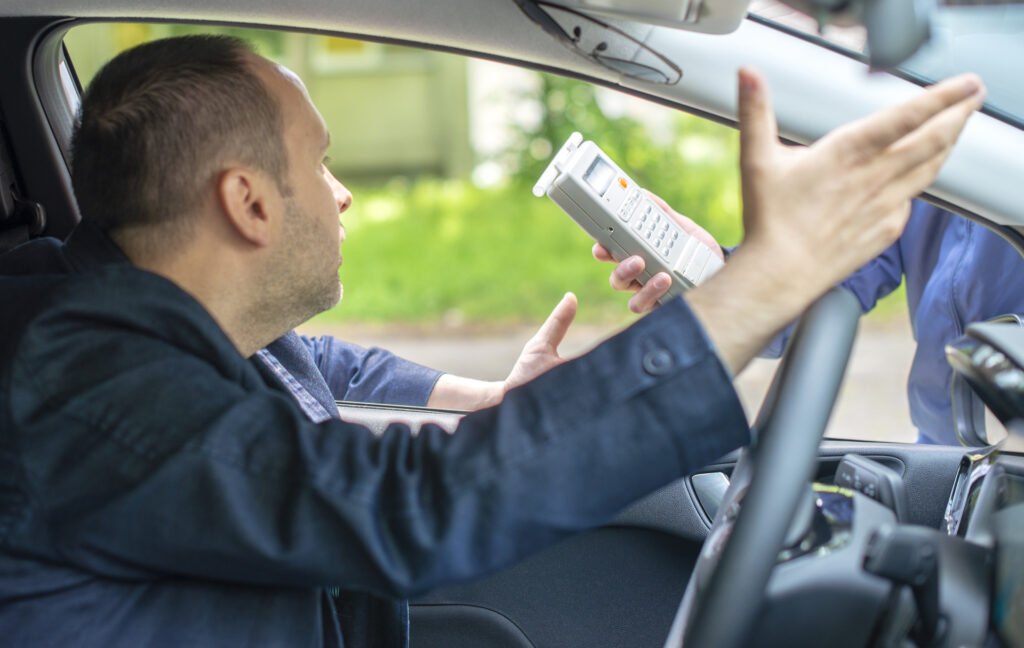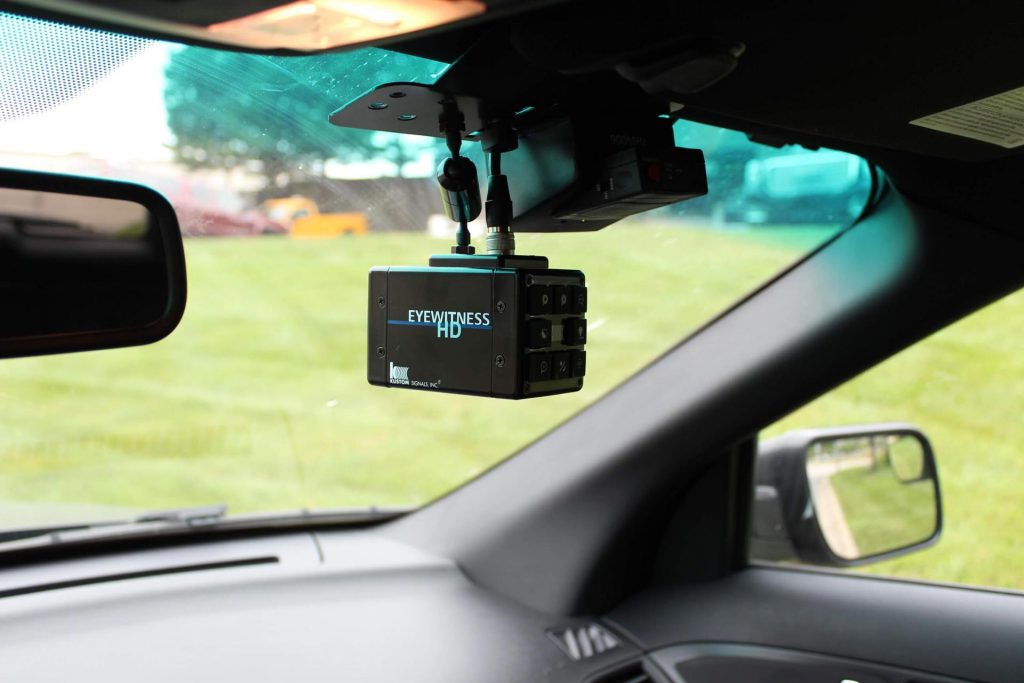If you’ve ever driven home and suddenly seen flashing lights up ahead, you may have asked yourself: are DWI checkpoints constitutional? It’s a fair question—and one that many drivers ask after finding themselves pulled over at one of these surprise roadblocks. At first glance, DWI checkpoints seem to conflict with the Fourth Amendment’s promise against unreasonable searches and seizures. Yet, law enforcement officers conduct them routinely across much of the United States. How can that be?
The answer lies in a complex legal balancing act between public safety and individual rights. Understanding are DWI checkpoints constitutional means digging into court rulings, state laws, and real-life situations where drivers’ rights hang in the balance. In this comprehensive guide, we’ll explore how the law treats these checkpoints, analyze the constitutional debates behind them, and offer real-world examples that reveal why this issue isn’t as simple as many people assume.
What Are DWI Checkpoints?
A DWI checkpoint (sometimes called a sobriety checkpoint) is a temporary roadblock where law enforcement officers stop vehicles to check for signs of impaired driving. Unlike a standard traffic stop, where police must have probable cause or reasonable suspicion to pull you over, DWI checkpoints involve stopping drivers without any specific individualized suspicion.
At these checkpoints, officers may briefly interview drivers, observe for signs of intoxication, and possibly conduct field sobriety or breathalyzer tests if they detect impairment. The entire purpose is to catch drivers under the influence of alcohol or drugs before accidents happen.
This unique feature—stopping drivers without prior suspicion—raises the constitutional question: are DWI checkpoints constitutional?
The Constitutional Debate: Fourth Amendment Concerns
The U.S. Constitution’s Fourth Amendment guarantees protection against unreasonable searches and seizures. Generally, police need probable cause or reasonable suspicion to stop a vehicle. So naturally, many argue that sobriety checkpoints violate this standard because officers pull over drivers at random without individualized suspicion.
The central question becomes whether preventing drunk driving—undoubtedly a major public safety concern—justifies this departure from the traditional Fourth Amendment rule. In answering are DWI checkpoints constitutional, courts have engaged in decades of debate.
Real-Life Story: James’ Checkpoint Encounter
James, a 42-year-old accountant, was driving home late from an office holiday party in Dallas. He hadn’t had a drink in hours but was stopped at a sobriety checkpoint. After answering a few quick questions and demonstrating no signs of impairment, he was allowed to continue. Though inconvenienced, James wasn’t cited or arrested.
Later, James wondered: “Was that even legal? Can they just pull me over without cause?” Like many, he found himself asking whether DWI checkpoints respect constitutional protections.
James’ story mirrors the concern behind the question are DWI checkpoints constitutional — a momentary stop may seem harmless for some, but deeply intrusive for others.
The Supreme Court Weighs In: Michigan v. Sitz (1990)
The U.S. Supreme Court addressed are DWI checkpoints constitutional head-on in the landmark case Michigan Dept. of State Police v. Sitz (1990). In this case, Michigan drivers challenged sobriety checkpoints as unconstitutional under the Fourth Amendment.
The Court ruled in favor of the state, holding that the intrusion posed by brief sobriety checkpoint stops was outweighed by the government’s interest in preventing drunk driving fatalities. The majority emphasized that:
- Drunk driving poses a substantial threat to public safety.
- The checkpoints were minimally intrusive.
- The brief nature of the stops and clear procedures limited potential abuse.
In essence, the Court carved out an exception to the usual Fourth Amendment rule, allowing DWI checkpoints as long as they’re conducted in a reasonable, non-arbitrary manner.
States’ Rights: Not All States Agree
Even though the U.S. Supreme Court found DWI checkpoints constitutional under federal law, several states have banned them under their own state constitutions or statutes. These states believe their residents deserve stronger protections than those offered by federal law.
States that prohibit sobriety checkpoints entirely include:
- Texas
- Alaska
- Idaho
- Iowa
- Michigan
- Minnesota
- Oregon
- Rhode Island
- Washington
- Wisconsin
- Wyoming
In these states, police must rely solely on traditional traffic stops based on probable cause or reasonable suspicion. So if you’re wondering are DWI checkpoints constitutional and you live in Texas, for example, the answer would be no—at the state level.
Real-Life Story: Olivia’s Texas Experience
Olivia was driving home through Austin late one night when she approached what looked like a roadblock. Surprisingly, it wasn’t a checkpoint for DWI—Texas prohibits them. Instead, officers were conducting a “No Refusal Weekend,” where they focus on pulling over drivers based on observed behavior and obtain search warrants quickly if drivers refuse breath tests.
Olivia’s experience shows that even in states where DWI checkpoints aren’t constitutional, law enforcement finds other ways to crack down on impaired driving.
The Balancing Test: Safety vs. Individual Rights
The Supreme Court’s reasoning in Michigan v. Sitz used a balancing test that weighs:
- The government’s interest in preventing drunk driving
- The effectiveness of the checkpoint in achieving that goal
- The level of intrusion on individual privacy rights
This balancing act explains why are DWI checkpoints constitutional is still a gray area that varies based on implementation.
Key requirements for constitutional DWI checkpoints include:
- Publicized locations and times to reduce surprise
- Neutral, predetermined criteria for stopping vehicles (e.g., every third car)
- Minimal delay for drivers
- Clearly marked checkpoints with proper signage and visible police presence
Any deviation—such as profiling, arbitrary stops, or excessive delays—could lead courts to find that particular checkpoint unconstitutional, even if the general practice is allowed.
Real-Life Story: The Unconstitutional Checkpoint That Backfired
In one high-profile case, police in a small Florida town conducted a DWI checkpoint without clear guidelines. Officers began pulling over drivers selectively, targeting certain vehicles based on appearance. One driver challenged his arrest, and the court threw out the charges after finding that the checkpoint lacked neutrality and was therefore unconstitutional.
This story highlights why following proper procedures is essential for authorities conducting these stops—and why are DWI checkpoints constitutional isn’t a simple yes-or-no question.
Do You Have to Comply at a DWI Checkpoint?
Drivers often wonder: “If I encounter one of these stops, do I have to comply?” The answer varies by state but generally includes:
- You must stop at the checkpoint.
- You must provide your driver’s license, registration, and insurance.
- You are not required to answer further questions.
- You may decline field sobriety tests but risk license suspension under implied consent laws.

Even where DWI checkpoints are legal, your rights remain protected. You do not have to incriminate yourself by volunteering information beyond basic identification.
What About Refusing a Breathalyzer?
If police suspect you’re impaired, they may request a breathalyzer or blood test. Refusing these tests often triggers automatic license suspensions under implied consent laws, even without a DWI conviction. This consequence exists in both checkpoint and traditional traffic stop situations.
So while you can refuse testing, there are usually consequences even if the checkpoint itself was lawful.
The Texas Exception: Why DWI Checkpoints Are Banned
Although many states allow sobriety checkpoints, Texas stands firmly against them. Texas courts have consistently ruled that DWI checkpoints violate the Texas Constitution’s protection against unreasonable searches and seizures.
In Texas, police must rely solely on:
- Probable cause (e.g., weaving, speeding, erratic driving)
- Reasonable suspicion based on observable behavior
- Warrant-based enforcement for blood alcohol testing if drivers refuse consent
Thus, for Texas residents, the answer to are DWI checkpoints constitutional is a clear no — though that doesn’t mean officers can’t arrest impaired drivers using traditional methods.
Real-Life Story: The Texas No Refusal Weekend
During a “No Refusal Weekend” in Houston, police set up mobile magistrates to issue immediate warrants for suspected drunk drivers who refused testing during regular traffic stops. One driver who refused a breathalyzer was still subjected to a blood draw after a judge issued a warrant on the spot.
This approach allows Texas to enforce DWI laws aggressively while still complying with its constitutional ban on sobriety checkpoints.
Arguments In Favor of DWI Checkpoints
Supporters argue that DWI checkpoints:
- Save lives by deterring impaired drivers
- Allow police to remove dangerous drivers from the roads
- Act as a highly visible public safety measure
- Require less officer discretion compared to standard traffic stops

Proponents often cite studies showing reduced alcohol-related fatalities in jurisdictions that conduct checkpoints regularly.
Arguments Against DWI Checkpoints
Opponents argue that DWI checkpoints:
- Violate Fourth Amendment rights by lacking individualized suspicion
- Allow potential profiling and abuse of police discretion
- Rarely catch many drunk drivers relative to the number of cars stopped
- Waste resources that could be better used on targeted patrols
Critics believe that roving patrols are far more effective at actually catching impaired drivers.
International Perspectives: How Other Countries Handle DWI Checkpoints
While Americans debate are DWI checkpoints constitutional, other countries approach sobriety enforcement differently:
- Australia: Rigid random breath testing is common and legally accepted nationwide.
- Canada: Random stops are widely used and often include roadside alcohol screening.
- United Kingdom: Sobriety checkpoints are rare, but police conduct random stops based on suspicion.
Many foreign nations allow far more intrusive roadside testing than U.S. law permits, highlighting the uniquely American tension between public safety and individual rights.
The Future of DWI Checkpoints and Constitutional Law
The constitutional debate over DWI checkpoints continues to evolve. As technology advances, some legal experts predict:
- Greater reliance on electronic DUI detection devices at checkpoints
- New challenges in state courts expanding or restricting police authority
- More widespread use of dashcams and body cameras to ensure constitutional compliance

Public attitudes toward civil liberties, government intrusion, and impaired driving will continue to shape this legal landscape.
Final Thoughts: Are DWI Checkpoints Constitutional?
When answering are DWI checkpoints constitutional, the short version is: under federal law, yes—with restrictions. However, many states—including Texas—choose to offer stronger protections for drivers by banning the practice entirely under state law. Even where checkpoints are legal, strict rules apply to protect individual rights.
If you encounter a DWI checkpoint, knowing your rights is crucial. You must stop, present identification, but do not have to answer further questions or consent to testing without consequences being clearly explained. Understanding this balance empowers you to navigate these encounters lawfully while respecting your rights.

